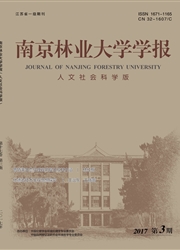

 中文摘要:
中文摘要:
知识经济时代,知识作为社会构成中最主要的资产形式,成为推动社会进步的基本单位。汉迪(Charles Handy)早已对此有过专门论述,艾米顿(D.M.Amidon)对此也有经典诠释。在社会组织资产形式转变中,当其他资产形式退隐后,第四阶段的知识作为资产渐趋成熟,创新的飞跃具备了最富有实质意义的现实条件,其中,人无疑是最重要的一个环节。作为任何社会组织或企业组织的主体,知识恰恰是他们认知活动的载体,他们的认知能力对社会进步事业的成败乃至知识管理框架下的创新起着根本性的决定作用,并由此决定了知识创新的有效性与科学性。本文从汉迪的S型曲线出发,结合知识论中的理智德性、信念认知、社会研究中的价值介入论等,在知识管理框架下探讨知识创新中人的认知因素。
 英文摘要:
英文摘要:
In the knowledge economy era, knowledge, as the most principal social asset, has become the basic unit for the advancement of society. According to Charles Handy and Debra Amidon, during the transformation of social organizational assets, with the retirement of other forms of assets, knowledge, in the fourth stage, tends to attain maturity, which prepares the most practical conditions for innovation. As an important factor of innovation, human's knowledge is the carrier of cognitive activities which determines the final consequence of social advancement. Therefore, human's cognitive capability is decisive to the innovation under the framework of knowledge management. It determines the effectiveness of knowledge innovation. Beginning from S-curve theory of Charles Handy, this paper studies cognitive factors of knowledge innovation under the framework of knowledge management with the application of theories such as intellectual virtue, belief cognition and value involvement in the research of social sciences.
 同期刊论文项目
同期刊论文项目
 同项目期刊论文
同项目期刊论文
 期刊信息
期刊信息
